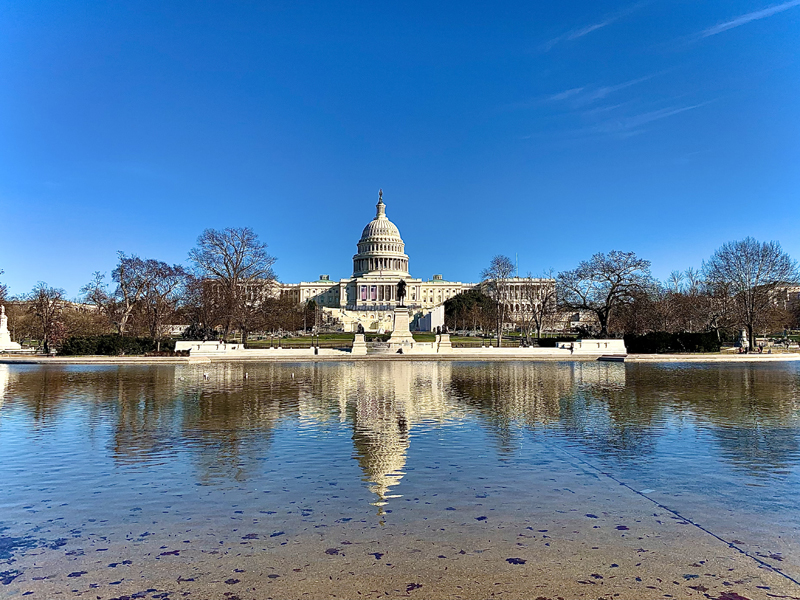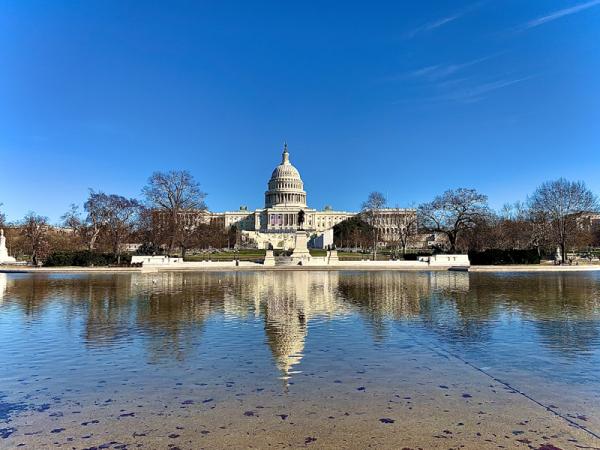KID REPORTERS’ NOTEBOOK
Trump Faces a Second Impeachment Trial


Former President Donald J. Trump faces a second impeachment trial due to his role in the January 6 riot at the U.S. Capitol.
On February 9, an impeachment trial for former President Donald J. Trump will begin in the United States Senate. In January, Trump was impeached by the House of Representatives for “incitement of insurrection.”
The vote was 232-147. Ten Republicans joined all of the Democrats in holding Trump accountable for his role in the riot at the U.S. Capitol on January 6. After Trump held a rally outside the White House that day, his supporters went to the Capitol and stormed past law-enforcement officers. At Trump’s urging, they interrupted members of Congress who were in the process of affirming that Joseph R. Biden had won the presidential election. Five people died in the attack, and dozens more were injured.
Biden won a decisive victory in the Electoral College, defeating Trump 306 to 232. Still, Trump refused to accept the results.
A UNIQUE CASE
In 2019, then-President Trump was impeached by the House for the first time, for abuse of power and obstruction of Congress. The Senate later acquitted him without calling witnesses. No other president in U.S. history has ever been impeached twice.
Now the Senate must decide whether or not to convict the former President and, possibly, prevent him from ever running for federal office again.
To help readers gain a deeper understanding of the events that led to Trump’s impeachment, I emailed questions to Daniel Kiel, a professor at the Cecil C. Humphreys School of Law at the University of Memphis in Tennessee. Kiel is an expert in constitutional law and civil rights. Here are his responses, which have been lightly edited for length and clarity.
The U.S. is a democracy that enshrines freedom of speech and expression. When do protests cross over into being illegal?
Free speech is one of the most important freedoms protected in the U.S. Constitution. However, when protests incite violence or the overthrow of government, they do not receive the same constitutional protections. That means that if protests are aimed at causing imminent lawlessness, they can be punished.
What comfort can we draw from the Constitution during a time like this?
The Constitution was designed to last despite the passions of mobs in any particular moment. But the Constitution is only as firm as the people's willingness to abide by and enforce it. If enough people ignore the Constitution, then it becomes very fragile. Around the time of the ratification of the Constitution, founder James Madison, who did more than anyone else to draft the Constitution, said that if there is no virtue among the people, “No theoretical checks, no form of government, can render us secure.”
Do you think that more laws are needed to prevent things like this from happening again?
I will return to the quote from Madison. Laws might help, but people willing to defend the norms, procedures, and laws of our constitutional government are what is ultimately required. If there is no virtue among the people—whether the insurrectionists or the leaders who have fed their fantasies—then there are, sadly, limits to what any law can accomplish.
The norms, procedures, and laws were defended after the Capitol riots by 222 Democrats and 10 Republicans in the House, who voted to impeach President Trump for the second time. The participants in the Capitol mob are also facing consequences from law enforcement.
What is the main thing you'd like kids to understand about the January 6 riot?
Our democracy and our system of government should not be taken for granted. They require work to maintain and protect—work that might have started a long time ago at the nation’s founding, but that continues in every generation.
There will hopefully be times where things feel more secure than they do right now. There have been cycles of easier and harder times in our nation’s history, and this is certainly a difficult moment. I know that it can be particularly difficult for kids. I’ve had many tough conversations with my own kids that I wish we didn’t have to have about all of this. But I’m hopeful that kids will remember this feeling of uncertainty and commit for the next generation to continue the work of perfecting and protecting our nation. It is work worth doing.
